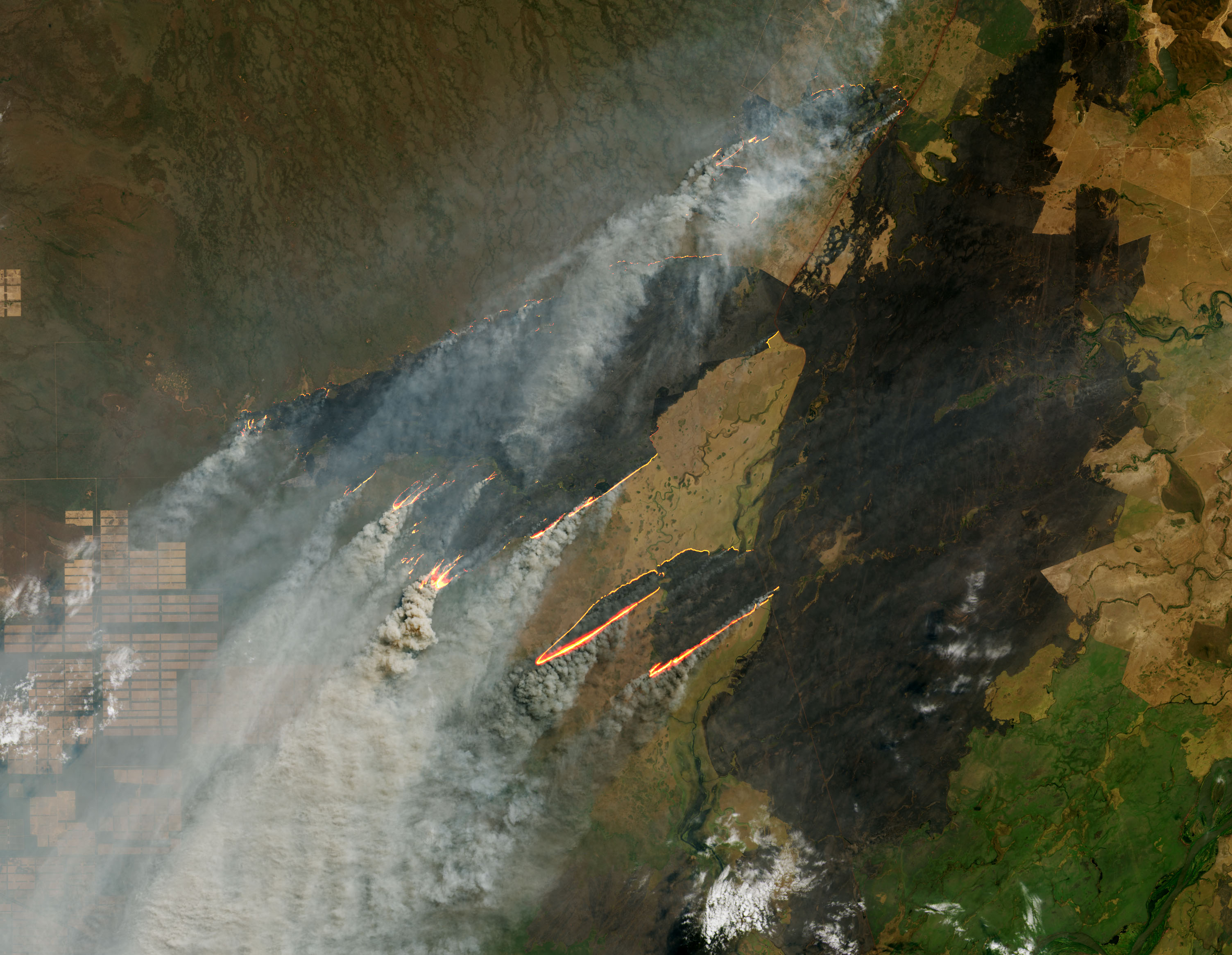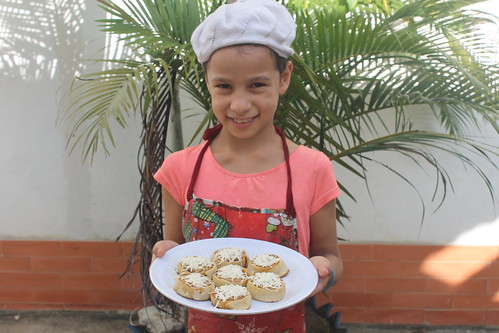Gracias damos,
Señor, por el pan, gracias damos, Señor, por el pan.
Por el pan
espiritual que alimenta cada cual, también por el pan material.
That is one of at
least two table prayers that we sing before meals in Venezuela. In it
we thank the Lord first for spiritual bread, then for material bread.
For, as the Small
Catechism teaches, our daily bread consists of all that we need to
sustain our life on earth. We trust in God for these things, but we
also remember the Lord’s words that man does not live by this bread
alone, but by all that proceeds from the mouth of God, which is the
Word of life (Matthew 4:4; Luke 4:4; Deuteronomy 8:3).
With that in mind,
over the summer break from school, our mission has hosted a series of
bakery workshops led by Alba Rosa Bastidas, an instructor licensed by
the Ministry of Education. About 25 women have attended, either
members of our congregation or mothers of preschool children. Every
session began with a Bible reading and prayer, followed by the
preparation of baked goods.
Rather than bake at
home, Venezuelans in the past have preferred to buy fresh bread and
pastries from the local bakery/cafe called a panadería. With
spiralling inflation, however, now it is more economical to buy wheat
flour and make many loaves of bread at a time, rather than spend the
same amount of money on just one loaf. So the kitchen in our
preschool has been filled with the aroma of all sorts of bread,
cookies, biscuits and, my personal favorite, cinnamon rolls!
 |
| NASA images of fires in Bolivia, Brazil and Paraguay. |
Deliver us from
evil
We also pray in the
Lord’s Prayer that the Lord would save us from all kinds of danger
or peril in this world. Every Sunday we include in the prayer of the
church specific peticions for those in our congregation and local
community who are infirm and in need; for our national church and its
pastor; for the nation of Venezuela and Venezuelans, especially
family members, who are in exile; and for persecuted Christians
throughout the world.
It is wonderful to
have access to such information, for it helps the local congregation
or mission feel part of a much larger, global community of
Christians. Advances in communication technology have always helped
drive Christian mission work. In the early centuries of the church,
the replacement of heavy, cumbersome scrolls with the codex,
or bound book, allowed copies of the Scriptures to easily be carried
in journeys over the extensive system of paved roads built by the
Romans. Johannes
Gutenberg’s invention of the moveable-type printing press in
the mid-1400s allowed for the economical printing of Bibles and the
rapid distribution of the works of Luther and other Reformers in the
16th Century.
The telegraph wire
was the
19th Century’s version of the Internet. It allowed messages to
be sent around the world in
minutes rather than weeks or months. Along with steamships and
railroads, the telegraph allowed for Christian missions within a
truly global framework. In the 20th Century, radio and television
broadcasts allowed the Lutheran
Hour and other missionary organizations to transmit Gospel
messages in support of church planting missionaries, and even inside
countries where foreign-born missionaries were not allowed. So now we
have the World Wide Web and communications satellites, and we live in
more of a global village than ever before, perhaps much more than
Marshall
McLuhan envisioned when he coined the phrase in the 1960s.
Graciously defend us
from fire and flood, war and pestilence, drought and tempest, want
and hunger. Heavenly Father, preserve and protect all who travel by
sea, land and air. We pray for those who speak for you in distant
lands; and by every medium of communication. As we all are strangers
and pilgrims on this earth, help us to prepare for the life to come,
before the hour of judgment arrives. Amen.


No comments:
Post a Comment